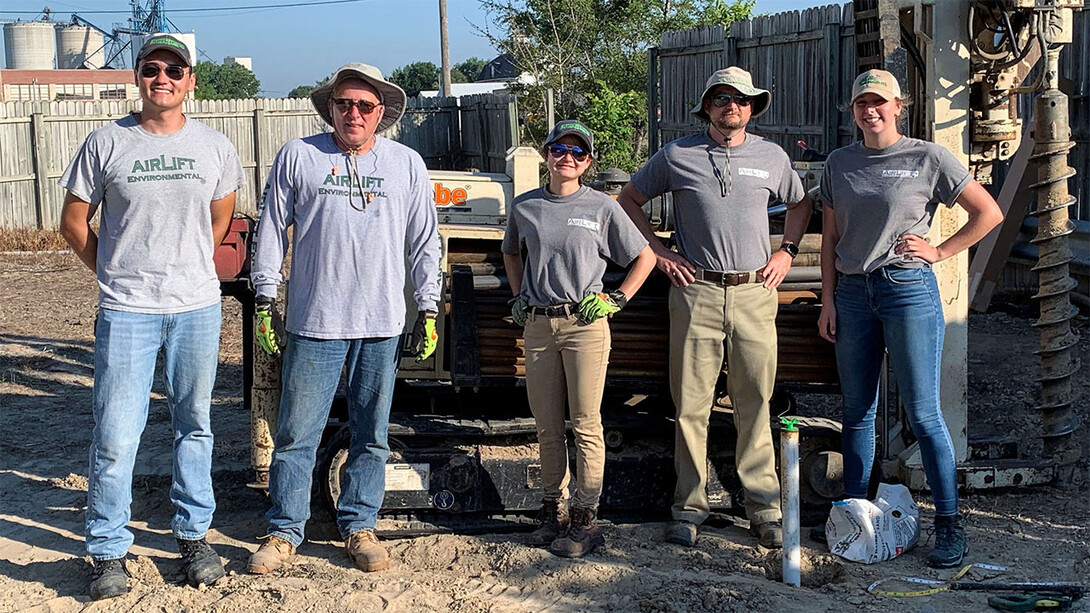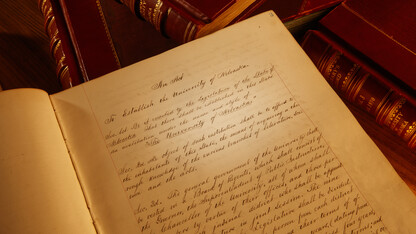
As city managers contend with environmental pollution, a university startup company is developing technology to clean contaminated groundwater.
AirLift Environmental is co-founded by Steve Comfort, professor of natural resources, and Mark Christenson, a Nebraska alumnus. The idea for the technology began with Christenson’s graduate research on chemical oxidants, which are commonly used to treat pollution.
Chemical oxidants are usually injected into the ground, but as groundwater moves, these chemicals disperse quickly — making it hard to treat areas long enough to eliminate pollution.
To address the problem, the Nebraska team developed an industrial-sized rod filled with wax and chemical oxidants that is drilled into contaminated areas. Once underground, the wax prevents oxidants from dissolving all at once. The slow-release method includes a plastic tube that bubbles air to the surface, continuously circulating oxidants in a polluted aquifer.
“Our system provides longevity in treating an area and allows us to more vigorously reach contaminants,” Comfort said.
The team has successfully tested its system at multiple sites across Nebraska, beginning with a landfill in Cozad.
“We pulled out of the Cozad site after five years because we demonstrated that our technology cleared the contamination,” Comfort said. “That’s great, because sometimes these towns have already tried several different technologies.”
The team has received federal funding from the Small Business Innovation Research and Small Business Technology Transfer programs, as well as the National Institutes of Health. NUtech Ventures has patented the team’s intellectual property and licensed the rights to AirLift Environmental.
“I’m proud of the team at AirLift Environmental for their commitment to commercializing technology that is treating contaminated water and positively impacting communities across Nebraska,” said Arpi Siyahian, senior technology manager at NUtech Ventures.







